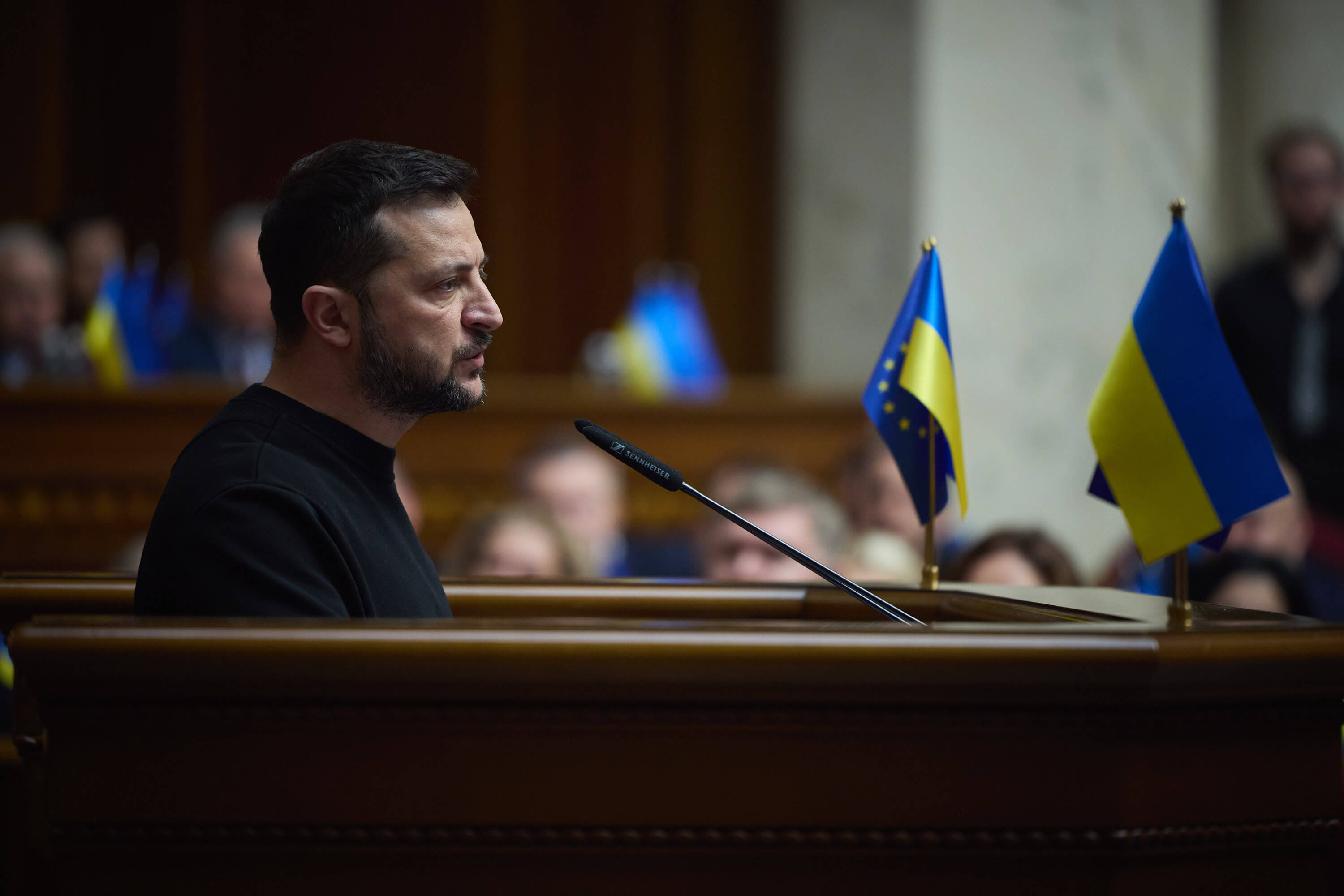Ukraine is considering a government reshuffle even as the war with Russia rages on. The political elite are actively discussing such plans, weighing technical details and timing.
While some are calling for a full overhaul, others suggest that at least 40% of the current Cabinet—including the Prime Minister and several ministers—could be replaced, according to sources within the presidential party in parliament.
Prime Minister Denys Shmyhal has led the government for a record 4.5 years, and speculation about his resignation has surfaced repeatedly.
But last week, for the first time, the Ukrainian parliament registered a bill that would permit a change of cabinet during martial law. If passed, it would open the door to replacing the prime minister at any time.
Although the bill was introduced by the opposition and its passage remains uncertain, the idea of replacing Shmyhal has a powerful supporter: the president’s chief of staff, Andriy Yermak.
He is reportedly backing Vice Prime Minister Yulia Svyrydenko—currently responsible for signing a landmark mineral deal with the United States—as his preferred successor.
Given President Volodymyr Zelenskyy’s efforts to maintain strong ties with the current U.S. administration, this deal may be the key factor driving support for Svyrydenko.
An alarming sign of growing instability
Svyrydenko currently holds a dual role as deputy prime minister and minister of economy. Known for backing Yermak’s initiatives, she frequently accompanies him on international trips, as he lacks the constitutional authority to lead official delegations.
Despite her diplomatic utility and English fluency, she has not built a strong reputation among Ukrainian businesses or politicians as a good economic manager or reformer.
The Ukrainian economy is in steep decline, with inflation climbing to 15.9% in May and key indicators showing both falling profits and mounting losses across sectors.
Nearly half of all industries have reported increased loss rates—an alarming sign of growing instability driven by inflationary pressure, rising costs, and external uncertainty.
Though Svyrydenko chairs multiple economic initiatives, critics say her efforts remain largely symbolic. Business leaders privately admit that she lacks both initiative and real authority to make independent decisions—effectively leaving the country without a functioning minister of economy.
With Ukraine’s wartime governance heavily centralised in the President’s Office, the replacement of the Prime Minister may have limited practical impact
Opposition MPs have accused her of blocking reforms, including the reform of the customs (known as an instant source of graft), and independent journalists have uncovered alleged corruption. One Western editor even remarked to me that Svyrydenko was unable to recall basic economic data during an interview.
Still, she enjoys strong political protection and remains a symbol of diplomatic success thanks to the U.S. mineral agreement. In reality, with Ukraine’s wartime governance heavily centralised in the President’s Office, the replacement of the Prime Minister may have limited practical impact.
The limits of government reshuffle
The same applies to other potential ministerial changes. While the positions of minister of veteran affairs—now held by the sixth different person under Zelenskyy—and minister of culture—currently the fourth appointee since 2019—are relatively unimportant within the Ukrainian system of governance, more influential roles such as healthcare and finance ministers are also reportedly under review.
The reshuffle is tentatively slated for early to mid-July. Meanwhile, Ukraine’s independent High Anti-Corruption Court last Friday held a hearing on potential pre-trial restrictions for another vice prime minister and minister of unity, Oleksiy Chernyshov, a close person to President Zelenskyy, who faces serious corruption charges.
 While President Zelenskyy has faced repeated calls to change the current government, he has so far refrained from doing so
While President Zelenskyy has faced repeated calls to change the current government, he has so far refrained from doing so
Western-backed anti-corruption bodies accuse him of abuse of office and accepting illicit benefits worth over $346,000 in a large-scale land grab scheme. Prosecutors requested $2.8 million in bail, the imposition of an electronic monitoring bracelet, and his suspension from office due to the risk of obstructing justice.
Political insiders suggest that the desire to avoid scandal-driven risks may be a key motivation behind the Cabinet reshuffle.
Ultimately, the decision rests with President Zelenskyy. While he has faced repeated calls to change the current government, he has so far refrained from doing so. Nonetheless, ongoing political manoeuvring has amplified opposition voices in parliament, modestly restoring the democratic balance—a balance significantly weakened following the Russian invasion.
Some argue that a government reshuffle, even if cosmetic, could help deflect criticism over the suspension of elections by signalling some form of political transition. Still, such changes are unlikely to address the deeper problem: the impossibility of holding genuine democratic elections under continued Russian bombardment.
To what extent can such a rationale outweigh the challenges from addressing the issues through a major reshuffle at a critical moment? This question stays rhetorical, and the answer may become clear very soon.